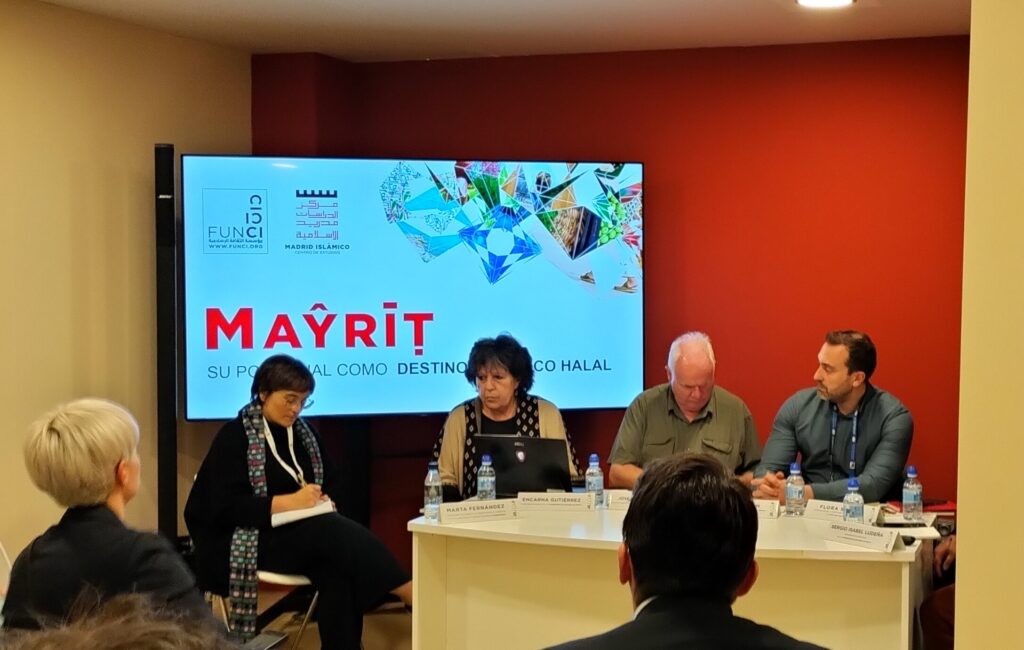Uncategorized
CEMI at FITUR 2025
On 22 January, the Islamic Culture Foundation (FUNCI) participated in the Madrid stand at the 2025 International Tourism Fair (FITUR). Various activities were organised with the aim of promoting Islamic heritage and highlighting its value as a cultural attraction for the capital of Spain. The purpose of its participation was to showcase the richness of the Islamic legacy, a tool for social, cultural and economic development.
‘Maŷriṭ and its potential as a halal destination’.
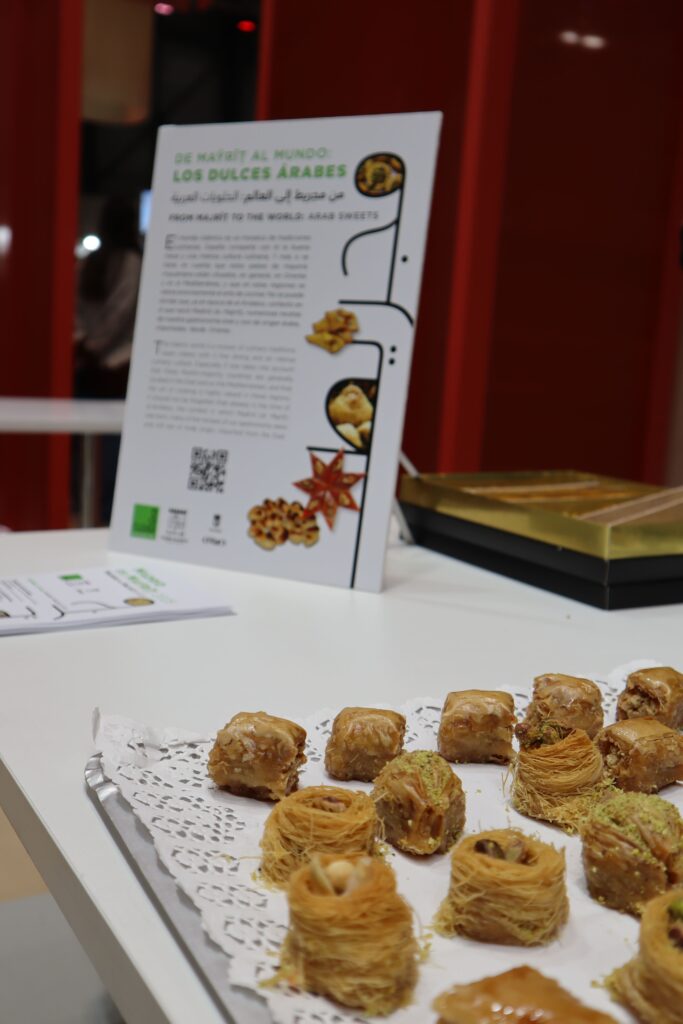
Throughout history, Western prejudices towards Islamic ‘otherness’ have influenced the perception and preservation of this universal heritage. However, in a globalised world and in the face of the climate crisis, it is essential to raise awareness of the need to promote inclusive and, at the same time, environmentally friendly tourism.
As a result of this spirit, FUNCI’s participation this year has focused mainly on several lines: a workshop, networking with other related institutions, and dynamic activities with the general public. At 16:00 h., a tasting of Arab sweets provided by the pastry shop Los Fenicios began, which sought to honour the gastronomic culture shared since the time of al-Andalus between East and West. Later, at 17:00, Mohammad Sadeq Ale Isaac, an Arabic-speaking calligrapher, gave a demonstration of this ancient art. Those lucky enough to attend the event were able to take a piece of history with them. On the other hand, a workshop entitled ‘Maŷriṭ and its potential as a halal destination’ was held.
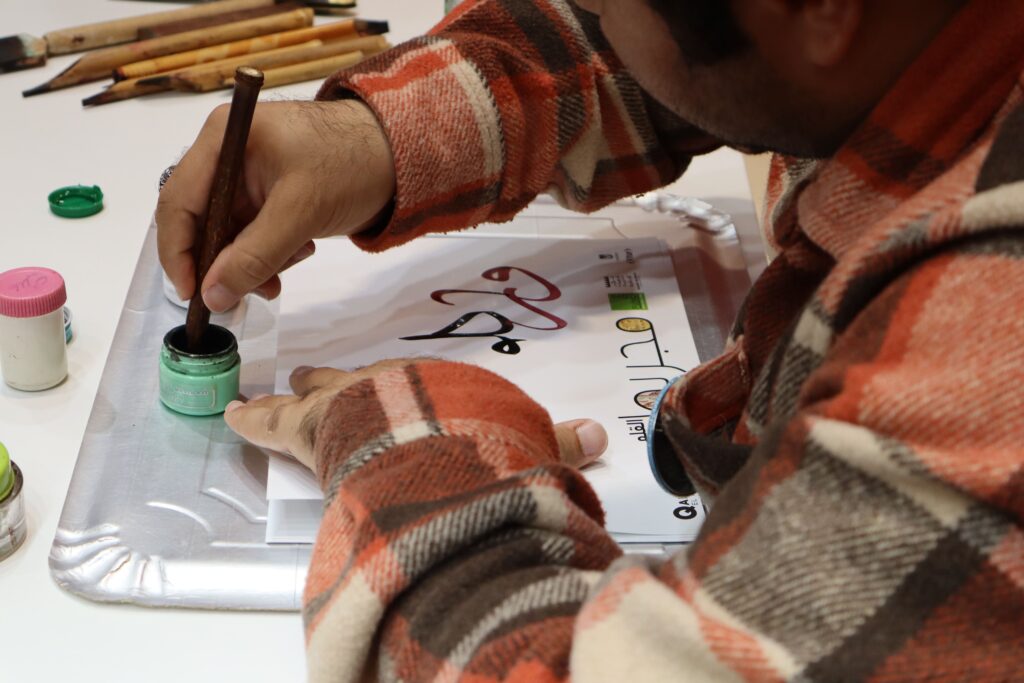
During this last activity, FUNCI carried out a SWOT analysis to determine the challenges and strengths of Madrid’s Islamic heritage as a cultural attraction from a national and international point of view, with a particular focus on ‘halal tourism’. The event was attended by Marta Fernández Martín, Tourism Advisor for Southeast Asia, Australia and New Zealand (Turespaña), Encarna Gutiérrez Hernández, Secretary General of the Islamic Culture Foundation, José María de Juan Alonso, Managing Partner and Founder of Koan Consulting, Jesús M. Morón Nadador, President of the Professional Association of Tourist Guides of the Community of Madrid (APIT), and Flora Sáez, co-founder and Development Director of Let’s Go Halal.
‘Halal’ does not only apply to the religious sphere, but to all areas of life and practices that seek to be respectful of everything that is related, in one way or another, to the Islamic world. In short, it can also be applied to the hotel and catering industry, or to the work of tourist guides, among others. The ECO HALAL VALUE brand, promoted by FUNCI, aims to provide companies, professionals and management bodies with a training programme, a guidance scheme adapted to this market and Muslim-friendly educational materials, emphasising its strategic interest in a market that has not stopped growing.
Part I. Preliminary reflections
The workshop opened with the following question: ‘What does the presence of the Islamic legacy in Madrid provide compared to other Spanish cities?’.
At the outset, Flora Sáez made it clear that ‘this heritage was not going to turn the city into a mass tourism destination, but it could provide it with other dimensions and attractions’. However, José María de Juan pointed out, ‘there is an opportunity, as Madrid is a communications hub in the country and has a flexible hotel and catering offer to meet the needs of customers’. Marta Fernández, for her part, emphasised that, in order to achieve this, ‘a series of interlinked steps were necessary: from knowing the heritage and creating the right story to promoting tourist products and training the sector (for which the guide’s participation is fundamental)’.
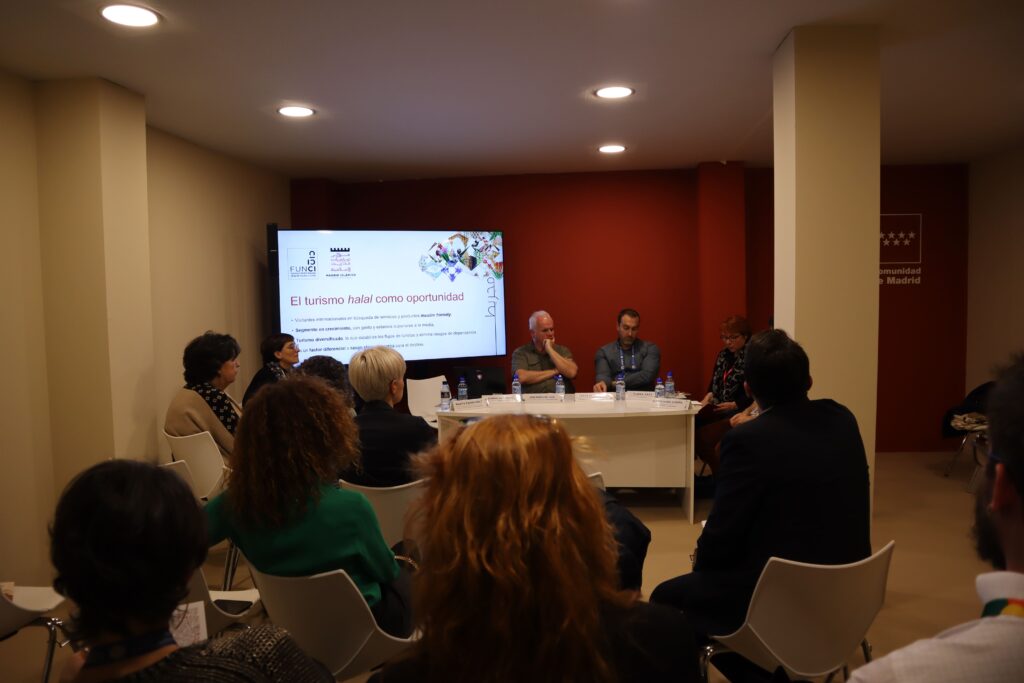
Along the same lines, Jesús Manuel Morón insisted on the urgency of ‘giving visibility to the origin of Madrid’. This view was reiterated by all, who stressed the importance of constructing a narrative from Spain. On the other hand, José María de Juan brought to the table the first problem that exists in the territory: there is no inter-regional connection that connects the projects focused on al-Andalus. Finally, Encarna Gutiérrez closed this first part by saying that ‘the Muslim tourist is very adaptable and offers many facilities in the destinations, but perceives the lack of recognition of Islamic civilisation and the Islamic past of the Iberian Peninsula’.
Part II. SWOT analysis
The acronym SWOT is broken down into: weaknesses, threats, strengths and opportunities. Six points were defined that addressed some of the aspects that directly affect the Islamic footprint in the city and can help to develop strategies for a better understanding and dissemination of the Islamic footprint.
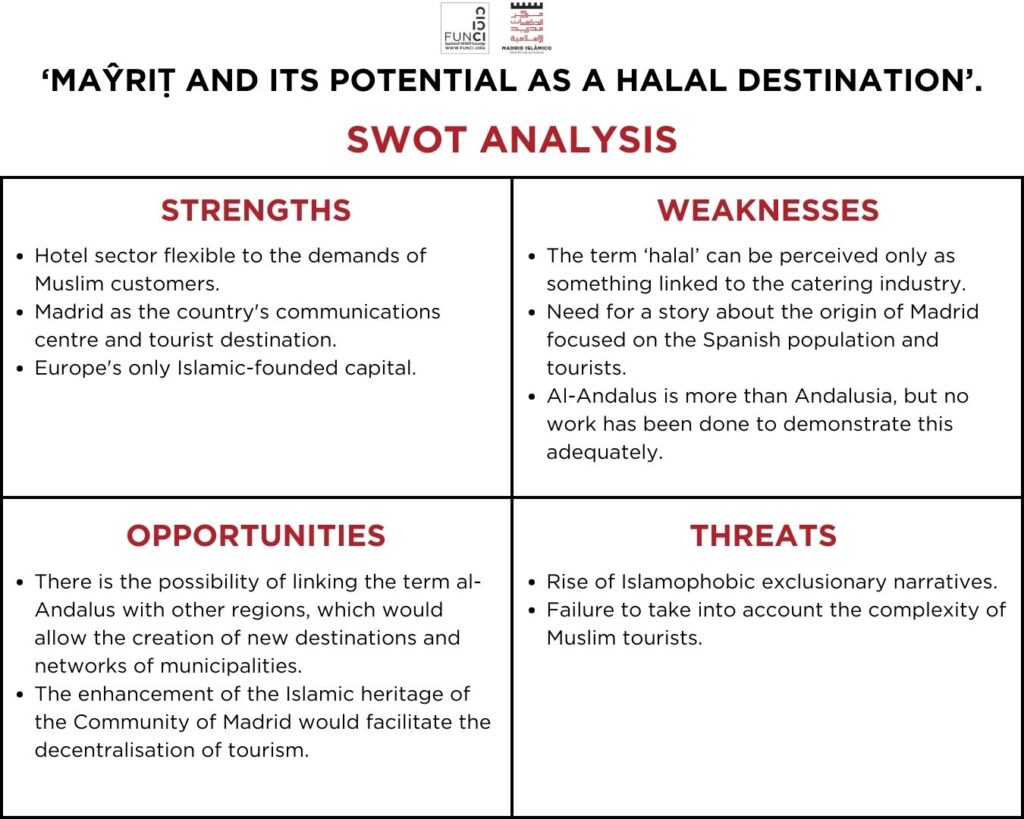
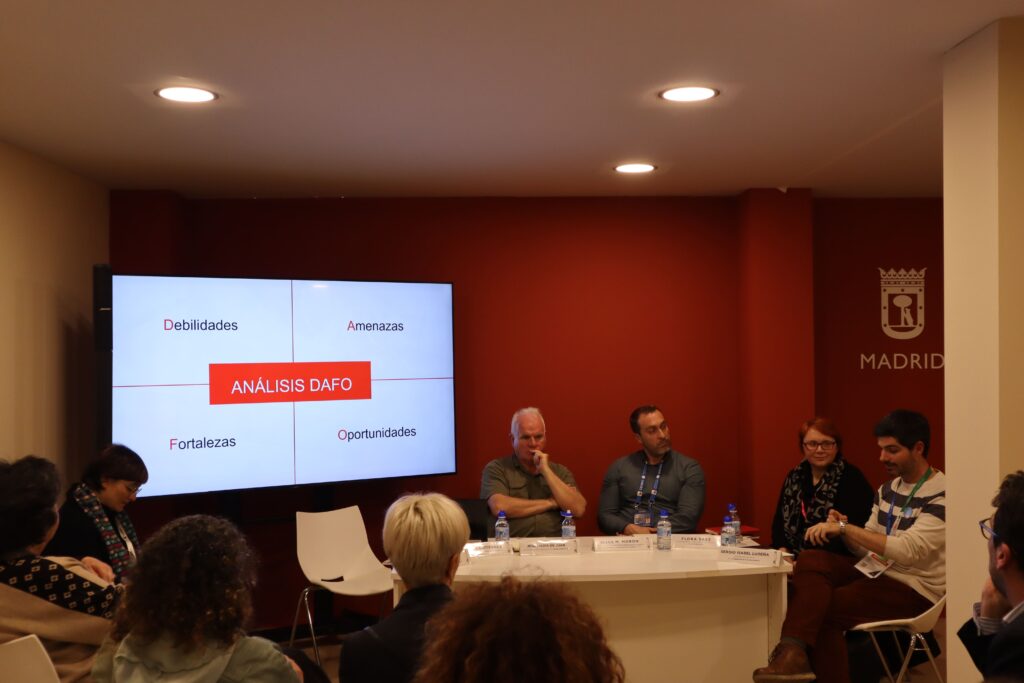
In short, they all agreed that it is necessary to create a national narrative about the origins of Madrid, a key point of entry for visitors. Although the Islamic legacy is not the city’s main tourist attraction, it can help to diversify and personalise the offer for the public, with special attention to the Muslim or Islamic world, which is complex, as well as open and flexible. One of the keys to achieving these objectives is knowledge, study and coordinated work between the entities involved. This would make it possible to project al-Andalus beyond Andalusia and thereby generate new destinations that are home to Islamic heritage, which, in this case, would result in the decongestion of the capital and redirection of visitor traffic towards the region’s territory.
Finally, we would like to thank both Madrid Destino (Madrid City Council) for giving us the space at the Madrid stand at FITUR and all those who have made these activities possible. We hope that in the coming years we can continue to collaborate and participate in order to raise awareness of Islamic culture and its possibilities for building a better future.
Este artículo está disponible en Español


